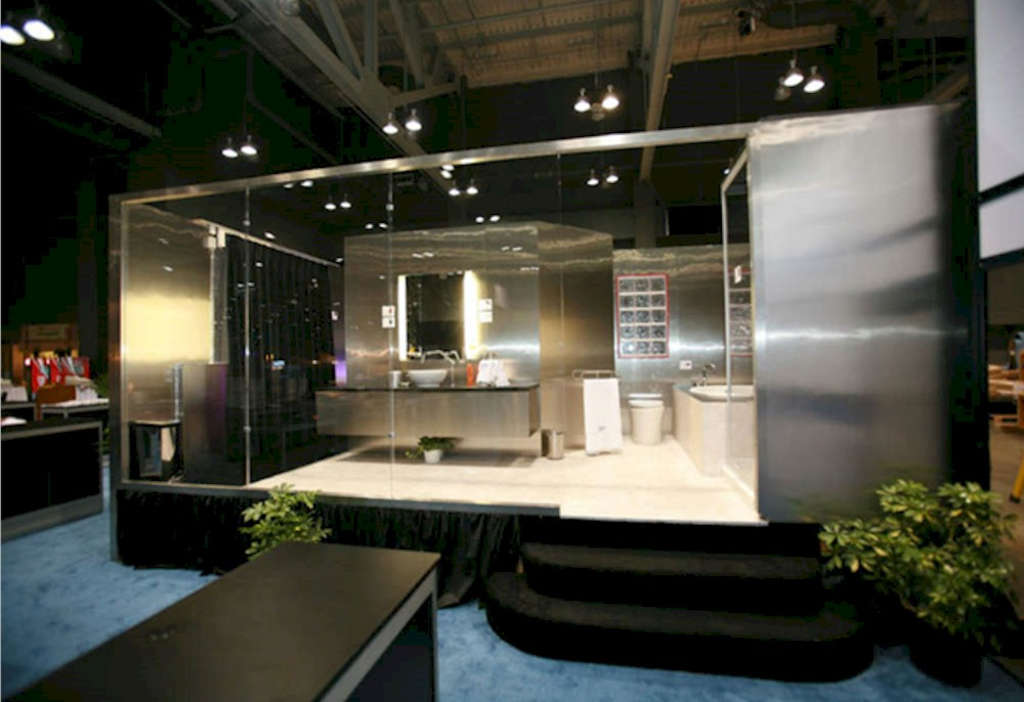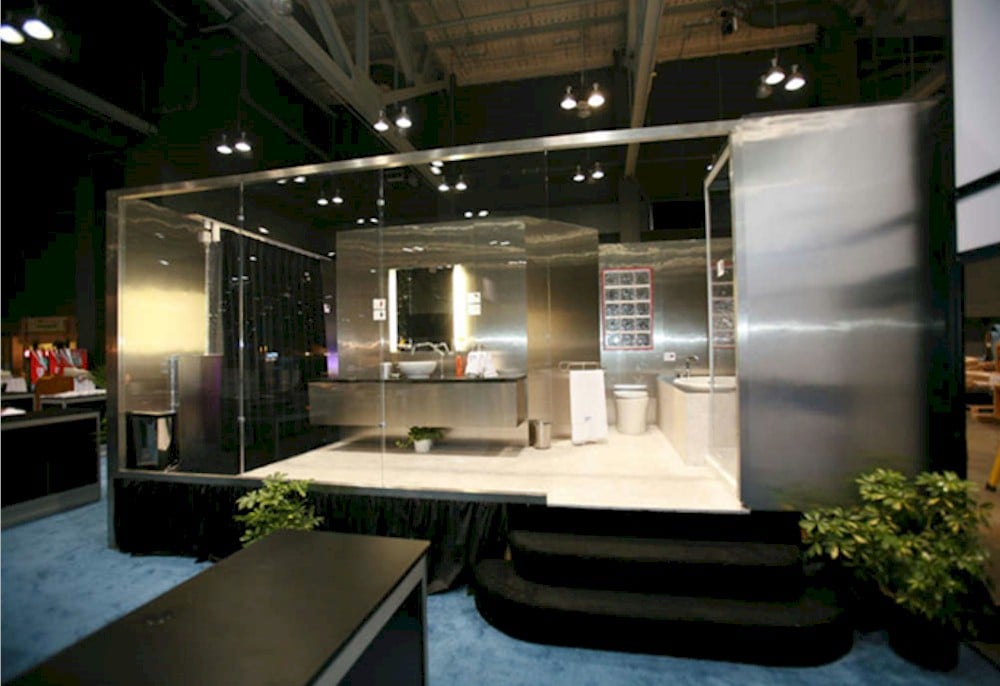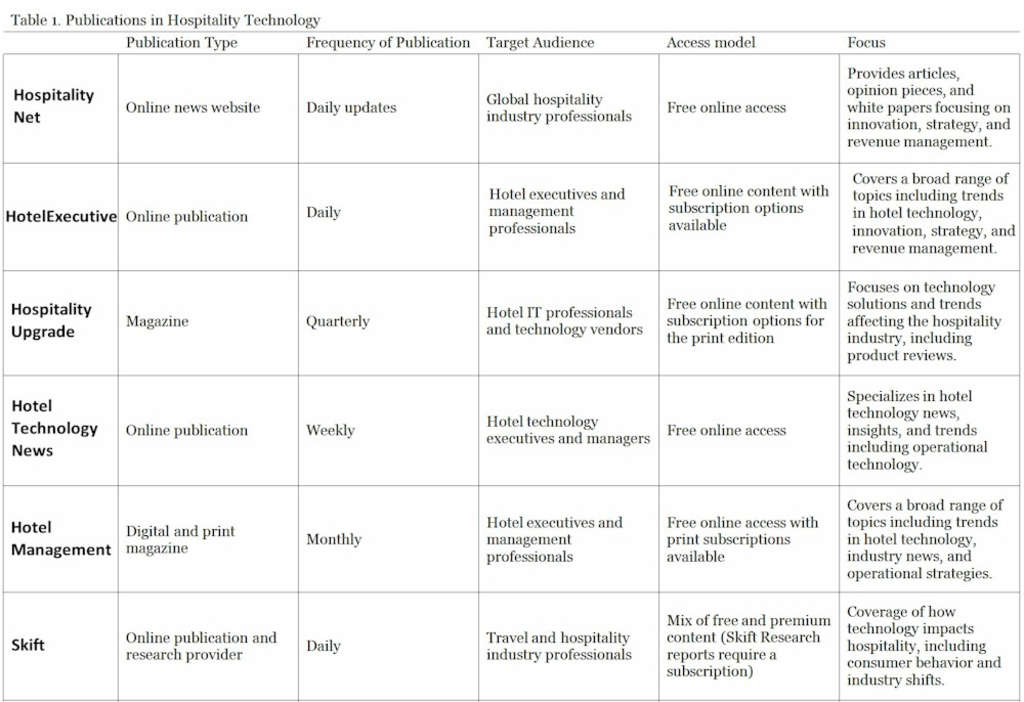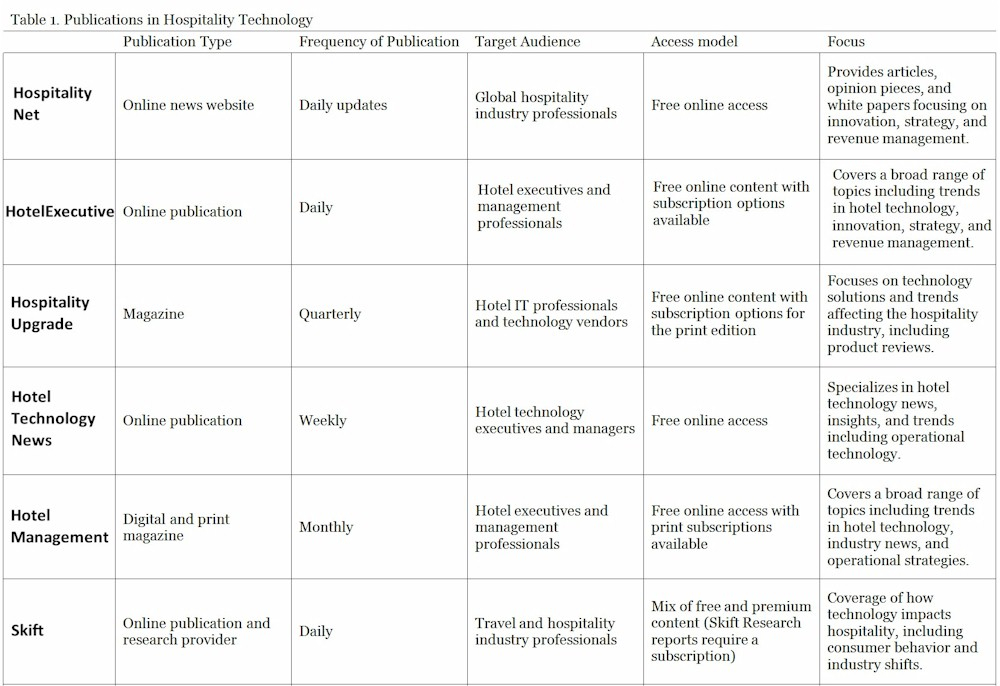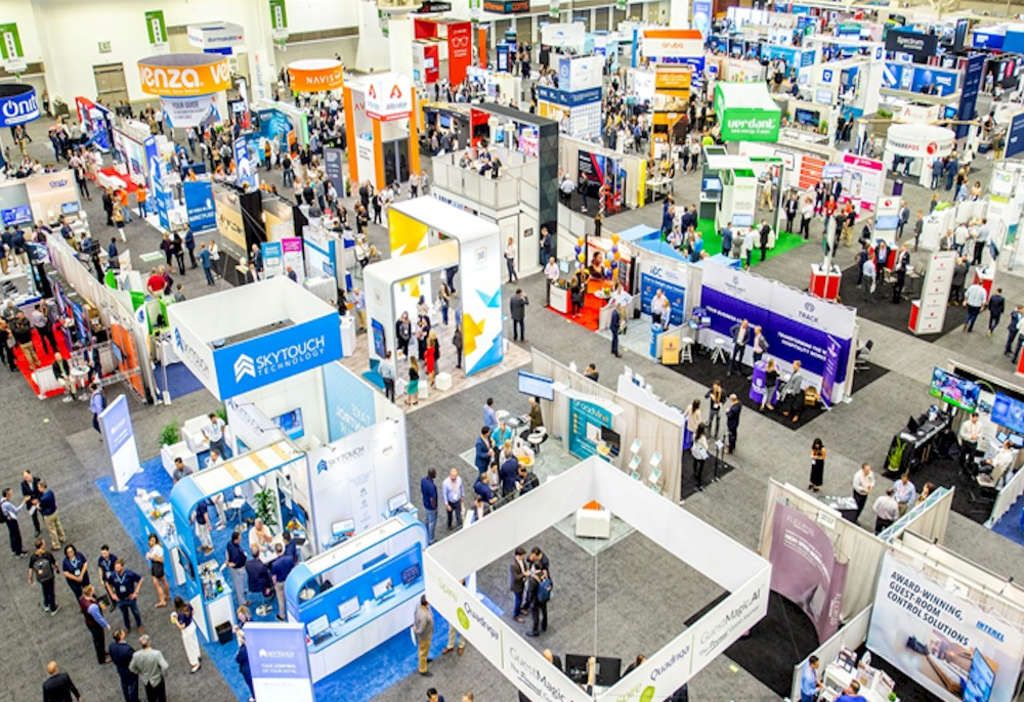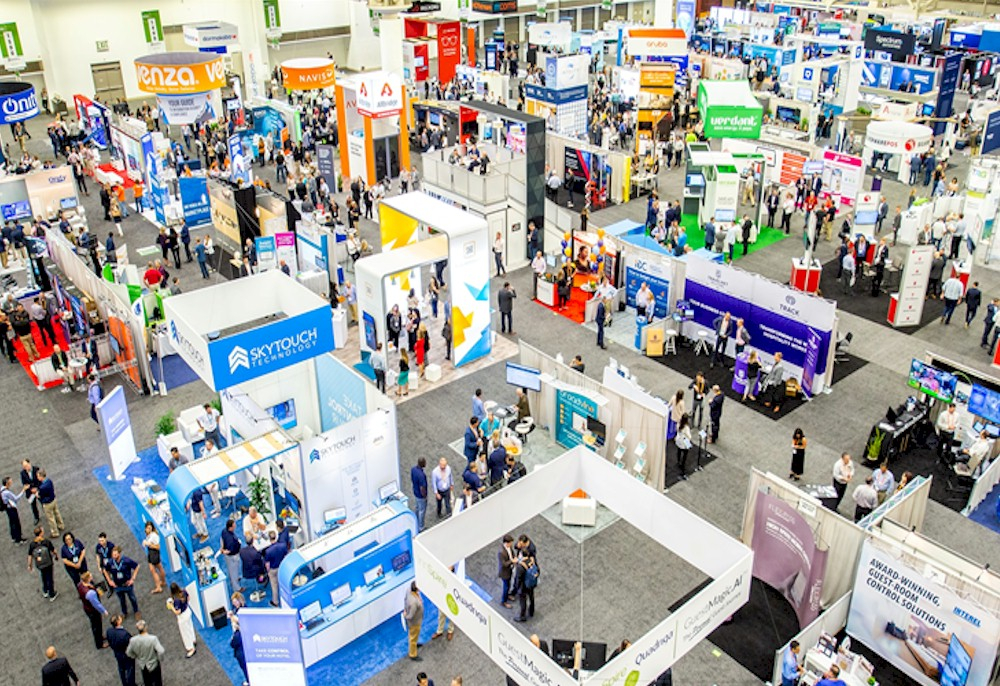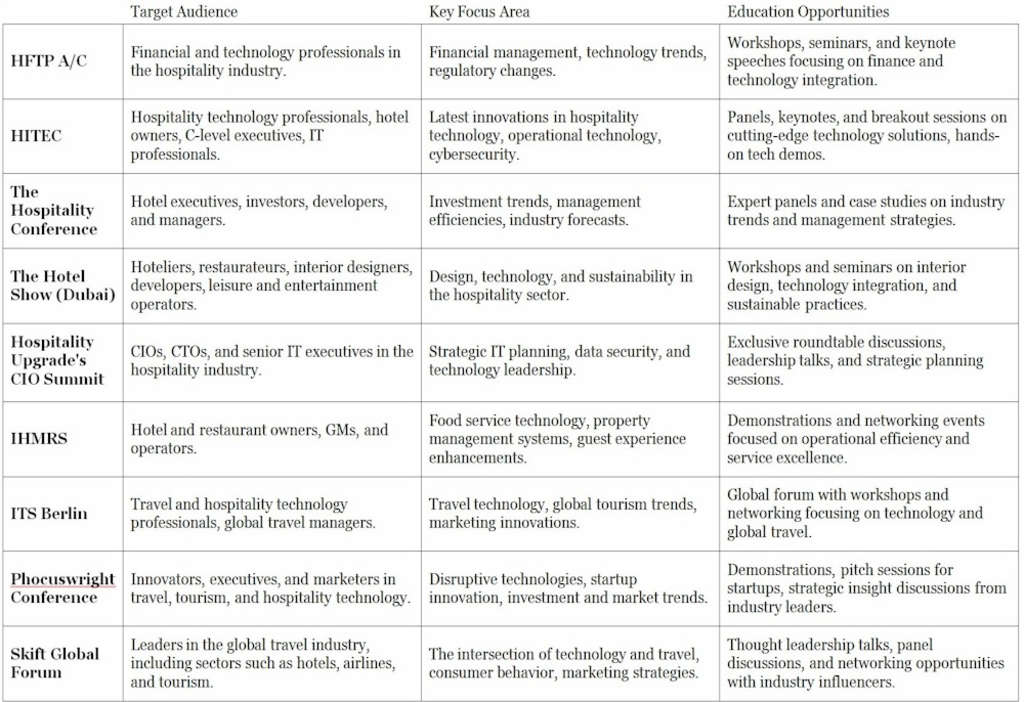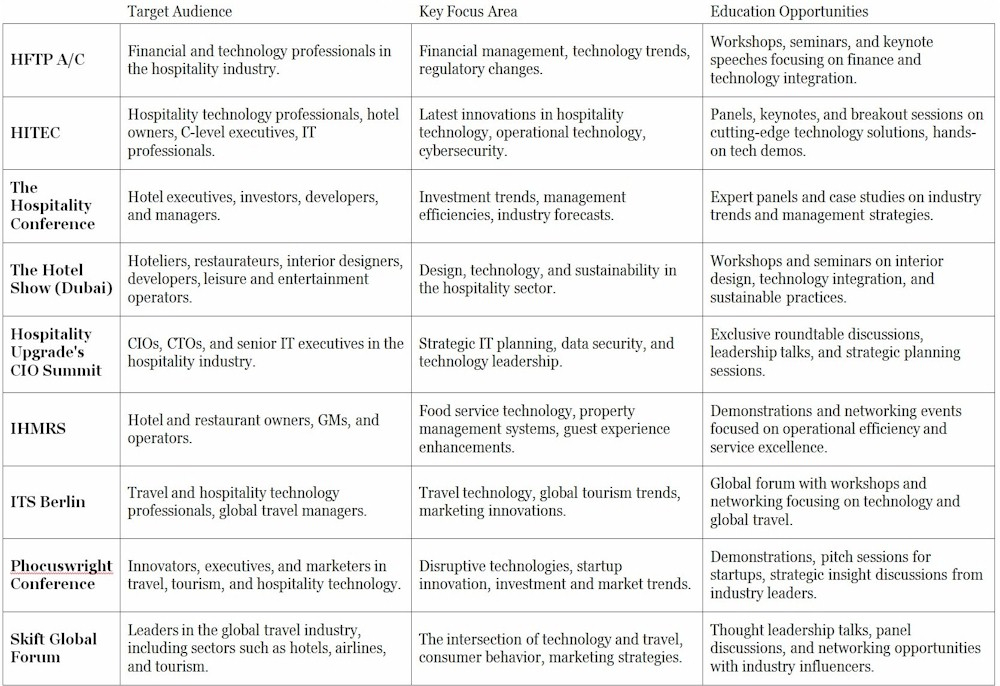Recognizing Technology Advancements in The Lodging Industry

I am privileged to have built a career in hospitality technology at an opportune time, as technology emerged as a powerhouse in the industry. I became passionate about hospitality technology as an undergraduate student in the early 2000s.
I had a mentor that recognized my passion in the field. She brought me out of my comfort zone and opened doors to boardrooms, conferences, showroom floors, and mentors in this field. Due to these mentors, I became a three-time Chair of HITEC (i.e., the largest global hospitality technology event), elected President of HFTP (i.e., the largest hospitality technology professional association), earned a PhD in hospitality & tourism management, became MC at The Hotel Show - Dubai, and had opportunities to travel extensively for consulting work in the field. Yet, there is something I have had trouble grasping about hospitality technology in the nearly 25 years I have spent in the field no matter how hard I try: How can I stay abreast of the changes taking place?
A survey of the global business environment evidences a rapid technological revolution in many sectors. Innovations are emerging at an extraordinary pace. Staying abreast of these emerging technologies can be a daunting task for even the most ardent professionals. The landscape is after all constantly evolving. However, embracing technological advancements is crucial for hotels to remain competitive and meet the ever-changing demands of modern travelers.
Furthermore, hospitality professionals have a responsibility to themselves and their careers. We cannot be effective hospitality professionals without an understanding of technology in our industry. A quick overview of statistics that evidence the importance of staying abreast of this:
- 65% of hotel guests prefer hotels that offer advanced technological amenities (Verma, Plaschka, & Louvieris, 2021).
- 73% of hotel operators believe that implementing new technologies will be crucial to their success over the next few years (Oracle, 2022).
- 69% of hospitality companies planned to increase their technology budgets in 2025, reflecting the industry’s growing emphasis on technology adoption (Hospitality Technology, 2024).
- 89% of front-line team members identify enhanced technology as something that makes them happier with their employer (McNalty, 2024).
I believe that anyone who tells you they have a handle on all the logistics and emerging tech in our industry is likely misleading you. What we should do as industry professionals is be cognizant of where we source our information. We need to stay well-informed of hospitality technology and we need to ensure our information is correct. Yet, hospitality technology and its rapid pace of development can be overwhelming.
The niche area of hospitality technology seems to be in a constant state of flux due to the pace of development. Some readers may remember things such as Guestroom 20x at HITEC in the early 2000s. While Guestroom 20x no longer exists, the technology featured in those mock rooms does. In-room voice assistants, video camera doorbells, smart room controls, mobile app integration for check-in and room key access, advanced in-room amenities, WiFi best practices, the cloud, air purification, and even how charging ports exist for the multitude of traveler electronics were presented before their time at Guestroom 20x. Where can someone learn about such emergent hospitality technology today to ensure they do not fall behind?
Fortunately, there are numerous avenues available for hotel industry professionals to build their knowledge of emerging technologies.
One such avenue is attending an industry conferences or trade show. These are events featuring showroom floors with industry-specific technology for the industry. For instance, the Hospitality Industry Technology Exposition and Conference (HITEC) attracts thousands of attendees annually. HITEC provides a platform for vendors, educators, students, and attendees from industry to connect in a myriad of ways each year. There are education sessions, a showroom social events, and much more.
While printed copies of magazines may be seemingly going out of style, there remains robust journalism in some fields. Hospitality technology seems to be one such field. Hospitality technology magazines can therefore be a resource for industry professionals seeking to stay on top of emerging trends in this niche area. Publications such as “Hotel Executive” provide insight into the sector. These magazines are not necessarily printed but they are often available online. These publications cover a broad spectrum of topics, from critical analytic pieces and case studies to more rigorous academic articles and insightful pieces from industry leaders.
A third option is higher education from colleges and universities. Many universities and colleges offer degrees and certifications in hospitality, with some even offering hospitality technology management as areas of emphasis. Most colleges and universities also have departments of continuing education that someone can enroll in without becoming an on-campus ‘regular’ student. These programs are unique in that they provide theoretical knowledge but also at times hands-on training or practical experience. Bridging the gap between academia and industry in a trend in higher education.
Education from industry sources is a fourth option. Education is offered through professional associations, vendors, and lobbying associations. Professional associations in the hospitality sector often balance the provision of effective education with exhibiting bias. Bias can be particularly evident in those with lobbying interests such as AH&LA. Therefore, it is crucial to critically evaluate the knowledge offered by these organizations. Choosing a professional association in lieu of a lobbying association is likely a good approach to ensuring bias is limited. Vendor education is more likely to be biased when compared with associations. With this written, vendor education is integral to learning industry trends.
Finally, social media, blogs, and webinars can offer insight to trends. This is a fifth option for staying abreast of technology trends in hospitality. There are obvious examples of Listservs available to hospitality technology professionals. There are also email lists that organizations such as HTNG, HFTP, Hospitality Net, Hospitality Upgrade, Skift, or Hotel Technology News publish.
Knowing the precise sources to obtain information about hospitality technology can be arduous. The following methods are what I recommend.
Magazines and Other Professional Resources
We seemingly have the world’s knowledge at our fingertips in 2024. Yet, magazines, including online equivalencies of magazines, continue to play a role in our profession. Magazines set themselves apart by being written by experts who provide insights and analysis. Furthermore, industry trends, innovations, best practices, reliable market research, and regulatory updates are included in magazines. These are specific areas that align well with emerging knowledge in hospitality technology.
Conferences, Conventions, and Trade Shows
Conferences, conventions, and trade shows remain relevant in a post-COVID environment because face-to-face interactions remain integral to effective education and networking. Choosing the right event to attend often has to do with your role and expectations around hospitality technology. For example, Hospitality Upgrade’s CIO Summit is an invitation-only event intended for C-Suite individuals working daily in hospitality technology spaces. Meanwhile, IHMRS is geared toward operations and has a decidedly restaurant focus in many areas of the showroom floor.
Education
There are thousands of certifications available from professional associations, vendors, institutions of higher education, and collaborations of individuals from these groups.
When someone thinks of education, they normally think of research institutions of higher education. There is a good reason for this. There are 668 schools in the USA that offer education in hospitality according to Hospitality Colleges (2024). A vast majority of these cover hospitality technology, albeit some are more advanced in their curriculum than others. If someone is seeking to earn a degree or certificate in hospitality education, including in technology, then they would be well-served by learning about their options on the Hospitality Colleges website (link is in the reference list of this article).
Many higher education institutions make their programming available online through platforms such as Coursera, edX, Udacity, FutureLearn, or LinkedIn Learning (formerly Lynda.com). These platforms provide access to courses ranging from hospitality data analytics to strategic revenue management. Most of the coursework is led by industry experts or professors at prestigious universities. These courses can assist someone in staying ahead of technology trends at a low cost. Of further note, gaining certifications from prestigious institutions can enhance a professional’s credibility. Certifications such as these could potentially even open up additional career pathways. Continuous learning is crucial for adapting to hospitality technology’s constantly emerging landscape after all.
Organizations that are considered professional associations such as HSMAI (Hospitality Sales and Marketing Association International), HTNG (Hospitality Technology Next Generation), or HFTP (Hospitality Financial and Technology Professionals) as well as lobbyist institutes such as AHLEI (American Hotel & Lodging Educational Institute), NRA (National Restaurant Association), or AAHOA (Asian American Hotel Owners Association offer certifications in specifically hospitality technology or ones that overlap with this niche area of the lodging industry.
The most elite certifications come with designation, such as the CHTP (Certified Hospitality Technology Professional), CRME (Certified Revenue Management Executive), CDP (Certified Data Protection Officer), or CHIA (Certification in Hotel Industry Analytics). If someone wishes to enhance their professional education and grow their Resume effectively, then these industry certifications provide an excellent avenue to do that.
Many vendors offer education, and perhaps even certification, in their area of expertise. For example, Oracle, Sabre, Cvent, and Amadeus offer professional training in their areas of expertise. These trainings leverage each organization’s software and other technology in the ecosystem. Furthermore, many companies offer webinars and online presentations. These can be as simple as attending a 1-hour demonstration on Zoom.
Social Media, Blogs, & Podcasts
Social media, blogs, and podcasts are emergent areas of education for industry professionals. These channels are normally geared more toward younger than older groups. Yet, these channels are showing growth industry-wide and are projected to show continual growth in visitors and importance for reasons such as these:
- 75% of adults aged 18-29 use social media as a source for news and information about events, compared to only 49% of those aged 65 and older (Pew Research Center, 2021).
- The average age of monthly podcast listeners in the United States is 34 years old, with the 18-34 age group making up the largest share of podcast consumers at 41% (Edison Research, 2022).
- 61% of marketers aged 18-34 learn new skills through blogs and online publications, compared to only 38% of those aged 55 and above (Semrush, 2020).
- 90% of millennials use social media for professional purposes, including education and learning, while only 48% of baby boomers do so (Sprout Social, 2021).
Industry professionals seeking to stay abreast of technology trends in the lodging space can follow key influencers and thought leaders in hospitality technology on platforms like LinkedIn and Twitter. They can read blogs by technology providers and industry analysts. For example, PhocusWire offers consistent insights to emergent lodging tech. Podcasts such as The Hotel Tech Podcast, Fuel Hotel Marketing Podcast, and Hospitality Mavericks Podcast offer insights from effective lodging practitioners.
Conclusion
Understanding emergent ideas in the hospitality technology space can seem like an unsurmountable task. The industry is changing at such as rapid pace that it may seem like a full-time job to stay informed. Industry professionals may find navigating emerging technologies in the lodging sector more approachable by applying insights from this article though!
References
- EdisonResearch. (2022). The Infinite Dial 2022.
- HospitalityColleges. (2024). Your Guide to Hospitality Colleges in the USA.
- HospitalityTechnology. (2023). Embracing mobility & self-service. Lodging TechnologyStudy.
- McNalty,M. (2024). State of Hospitality Software. Sertifi.
- Oracle.Hospitality in 2025: Automated, Intelligent, and More Personal.
- PewResearch Center. (2021). News Consumption Across Social Media in 2021.
- Semrush.(2020). Online Behavior Study 2020.
- SproutSocial. (2021). Social Media Trends 2021.
- Verma, R., Plaschka, G., & Louvieris, P. (2017). Understanding customer choices and preferences in the digital age. Cornell Hospitality Report, 17(16), 3-18.
Reprinted from the Hotel Business Review with permission from http://www.hotelexecutive.com/.
